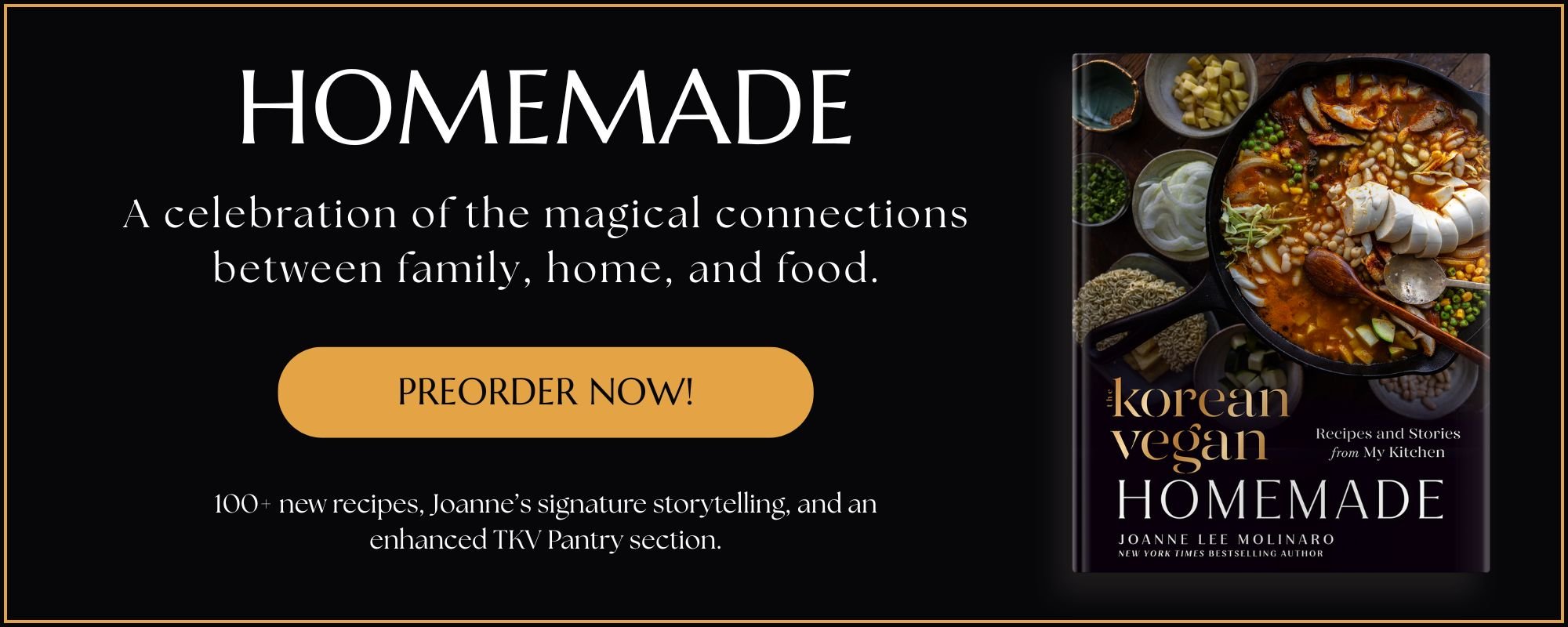I recently started watching a Korean drama, Delightfully Deceitful, that revolves around the relationship between an attorney and his client, a young woman who may have been wrongfully imprisoned for murdering her parents. Believe it or not, though, it isn’t the latter that I find provocative about this drama. Rather, it’s the fact that the lawyer is struggling with a condition called “hyper-empathy syndrome.”
I was so intrigued by the concept that excessive empathy could be so bad that it would actually constitute a “syndrome,” I had to look it up (I feel like half the “illnesses” that plague k-drama characters are totally made up). I was surprised to find that there were, indeed, several published studies on “maladaptive” deviations from a “healthy” empathy development trajectory. These maladaptive alterations can come in the form of heightened susceptibility to mental illnesses (like depression) and a vulnerability to acute stress (which can, in turn, subject you to chronic, life-shortening illnesses). In short, excessive empathy (as the K-drama emphasizes with questionable exaggeration…) can literally contribute to your premature death.
How To Tell If You May Have Hyper-Empathy Syndrome.
Here’s the thing: I know I have an overdeveloped sense of empathy (probably most of you reading this newsletter score above average on the empathy-meter, given what I know about y’all). But is there a way to tell if I’m hyper-empathetic? According to experts, here are a few, non-exhaustive tell-tale signs of hyper-empathy:
- Emotional Contagion. When you feel the other person’s emotions as if they are your own, to the point where it becomes difficult to differentiate your own feelings from theirs.
- Emotional Burnout. Feeling drained and tired after social interactions (whether one-on-one lunches or large parties).
- Social Anxiety/Phobia. If you’re constantly being overloaded with other people’s feelings, you may develop social anxiety or even a related phobia (e.g., agoraphobia, social phobia) of social interactions.
- Bad at Saying “No.” You have trouble setting boundaries and prioritizing yourself over others and thus agree to do things you’d rather not. You’re a people pleaser.
- Great Intuition. You are GREAT at reading people, but also have an almost telepathic ability to see what’s coming (emotionally and otherwise).
- Media Avoidance. You have excessive reactions to media, whether it’s on the news, a movie, or a YouTube video (e.g., how many of you can no longer watch anything with animals in it because you are terrified it’s going to get hurt???).
- Physical Symptoms. You have an increased heart rate, a hard time breathing, or feel lightheaded and unwell when you witness another person’s distress.
- Hero Complex. Other people’s problems (even people you do not know) become your problems and when you can’t fix all their problems, you feel guilty.
Do any of these things sound familiar to you?
Cognitive v. Emotional Empathy.
The other thing I found super interesting about the k-drama was that it was a lawyer with hyper-empathy syndrome. I’ve often believed that many lawyers are disguised empaths, donning their fangs for opposing counsel, while deploying their empathic superpowers to gain the trust of their clients and juries. After all, lawyers are, at bottom, counselors. Our job is to give advice, and the best advisors know what makes their advisees feel confident, anxious, sad, happy, empowered, uncertain, assured, angry, etc.
But the best advisors also know how to erect a boundary around their clients’ feelings and their own. I ran into this problem even as a partner, by which time you’d think the grizzled lawyer in me would have learned the pitfalls of failing to set boundaries. Some of the biggest mis-steps I made in my 17-year practice occurred when I was too angry on behalf of my client to maintain objectivity. I learned that there are two kinds of empathy: (a) affective empathy and (b) cognitive empathy. The latter refers to what I’m describing in effective lawyers–i.e., the ability to read people or read a room, and adjust accordingly. The former–affective empathy–refers to the emotional response or mirroring that occurs, usually when you witness someone in distress. Interestingly enough, you can have a lot of cognitive empathy without having much affective empathy, and vice versa.
Of course, negative consequences arising out of one’s propensity to mirror someone’s feelings (emotional and physical!) are not limited to professional settings. Certainly, this was the backdrop of my doomed first marriage. I think I took the romantic notion of “turning two souls into one” too literally and ended up walking into a codependent relationship believing it was “true love.” The problem, of course, was that I felt every single emotion my ex-husband did, including the acuity of his pain. This was particularly so if I was the cause of that pain. Ultimately, that meant that any time I hurt him–even if it was to defend myself against him–I also hurt me. In the end, the math shook out as follows:
Him hurting me = Joanne’s pain
Me hurting him = His pain + Joanne’s pain
As such, it simply became a matter of emotional efficiency to just let him hurt me without defending myself, since I would end up getting hurt no matter what.
This, I think, is the raw deal many hyper-empaths are dealt: logically speaking, it costs less energy to simply shoulder your pain than to cause it. This, then, leads to loneliness, depression, guilt, and, of course, stress: all precursors to a shorter life.
What Causes Hyper-Empathy?
Speaking of “raw deals,” how much of hyper-empathy is a choice? Can empaths simply elect to feel less? Well, yes and no. I was surprised to discover a not-insubstantial amount of evidence that hyper-empathy is, in part, a genetic condition, insofar as there are certain markers in one’s DNA that predispose a person to the maladaptive tendencies noted above. In that sense, for better or worse (some would argue worse), you are, in part, coded to mirror other people’s emotions, feel guilty when you can’t solve world hunger, go into depression when the dog dies in the movie you were watching.
I was thinking of this idea–whether excessive empathy was an inheritable trait–the other day while running (which is where I have the majority of my profound thoughts). A few years ago, my friend Neman and I flew back to Chicago from NYC together and when we got to the baggage carousels to retrieve our luggage, we saw that a very large dog was sitting there inside a large cage, completely alone. He was crying (my heart is breaking just thinking of this memory).
A part of me wanted to call the freaking police, but the practical part of me reasoned, Okay, the police will do nothing. That security dude who looks like he spends most of his day watching TikTok? Yeah, he’s not going to do anything either. Short of reuniting this dog with his family (and what sort of “family” would do this to their dog??), there’s very little you can do. I thus concluded that as much as I wanted to do something, I needed to get home to my own family, my own dog.
But Neman?
He parked himself next to that terrified puppy, comforted him and whispered to him and soothed him for another hour–right up until the family, who had been stuck on a separate and significantly delayed flight from Romania, arrived, tears streaming down their faces as they were finally reunited with the dog they absolutely refused to leave behind, even if it meant putting their oversized animal in a crate because that was the only way they could bring him over.
Neman’s extraordinary empathy, I thought as I neared the end of my run, had to be some sort of magical combination of genes in his DNA and really sound parenting.
Because parenting, it turns out, is the other major contributive factor to hyper-empathy. It remains to be seen whether Neman has any maladaptive tendencies (sorry to put you on the spot, Neman!), but there appears to be a consensus among experts that parents who exhibit depression or other symptoms of mental illness (ranging from excessive anxiety to sociopathy) can trigger maladaptive deviations from an otherwise healthy development of empathy, particularly in the form of internalizing disorders. These disorders often lead to the usual suspects: anxiety, stress, guilt, loneliness, and depression.
The solution, then, is to make sure parents don’t suffer from depression or mental illness! How easy! I kid. Obviously, the treatment of any mental health disorders in any person, but especially those who are expecting or have children, is of crucial importance to a healthy population. But I imagine any of you who might struggle with hyper-empathy (or the symptoms thereof) might be interested in learning what other remedies there might be.
Strategies for Handling Hyper-Empathy.
The truth is, because hyper-empathy is, in all likelihood, a function of your genes (at least, in part), most interventions need to be made early–like, when you’re a toddler. Since all of you reading this right now are decidedly past that point in your development (at least physically… I kid!!!), we are left with coping techniques like the following:
- Visualize your boundaries. I’ve actually heard this before, but with respect to stress reduction or anxiety soothing (e.g., imagine the thing that’s causing your anxiety is that wisp of cloud in the air and watch it float out of view). I can personally attest to how effective it can be. So, do the same thing with your boundaries: the next time you sense yourself mirroring someone else’s distress, pain, or guilt, imagine a brick wall going up between the two of you.
- Calendar your “me time.” I live and die by my calendar and as a result of that, I started adding in non-negotiable blocks of time dedicated to running. There are very few things in life that will replace that block (like launching a K-beauty brand?) and literally seeing it on my calendar solidifies it as something I need to prioritize.
- Rehearse the phrase “no.” Look, you know what’s “too much” and you shouldn’t feel guilty about it. That birthday party you don’t want to go to? The coffee date you made with your friend all those months ago when it seemed so far off? It’s ok to say “no” every once in a while to these things. Now, don’t get me wrong–friendships require doing things we don’t always want to do, but friendships also leave room for grace and repose, and depend upon honesty.
- Journal your feelings. The biggest problem I’ve run into with this hyper-empathy thing is struggling to figure out where the other person ends and where I begin. Journaling is a way to remind myself of who I am. What are my goals? What are my anxieties? What are my stressors? What are my feelings?
- Yoga. Look, I’m not a fan of yoga (I much prefer running), but I’d be remiss if I didn’t mention the fact that at least one study (albeit of 3 to 5 year olds) suggested that mindfulness-based yoga intervention improved behavioral self-regulation–i.e., yoga might give you the wherewithal to do all of the above.
I will say one other drawback to hyper-empathy is that we sometimes have the tendency to hijack other people’s circumstances. Another way of putting it is “main-charactering” ourselves in another person’s story. As empaths, our instinct is to “put ourselves in their shoes,” so to speak, but sometimes, we keep those shoes on and walk away. Part of the reason for this is understandable–we see pain, we feel pain, and our brains automatically switch into self-preservation mode. We become so occupied with self-soothing both the emotional and sometimes physiological reaction to witnessing distress, we may not actually see the other person any longer.
One study explained that those with a propensity towards maladapted empathy development might exhibit an “enduring tendency to focus cognitive resources inward on self-soothing efforts during emotional interpersonal interactions.” This may explain why researchers have suggested that hyper-empaths should learn to “shift attention away from threat cues or to decrease biases to evaluate ambiguous cues as negative….” In other words, sometimes, hyper-empaths can go so overboard with “feeling the other person’s feelings,” they effectively eliminate any space for that person to actually feel their feelings.
This is something I’ve personally felt. It is one of the main reasons I almost never tell my family when something is upsetting me. My pain becomes their pain becomes my pain. Once again, the empath-math prevents me from sharing my distress, which sometimes leads to several days of no contact with my family. Indeed, when Rudy died a few years ago, the thought of talking to my family was almost nauseating to me. I had barely enough emotional resources to handle my own grief. Even the thought of also bearing their anguish–on my behalf–was too much.
This is why I try to be more guarded with expressing my empathy when I see someone in pain. I also try really hard not to get in the way when I see someone in the throes of joy. Yes, I want to be supportive and I want to share in both the good and the bad; however, I also want to be mindful of letting them be the “main character” in their stories. Still, I wonder, now, whether my own instinct against imposing on a friend’s emotional range might be misperceived as aloofness, coldness, or, ironically, a lack of empathy. Perhaps, now that I’m aware of a propensity towards hyper-empathy and the resulting internalization, it’s time to employ a few of the boundary setting exercises I reference above. His pain is his pain, even if it’s in response to yours.
A final word on hyper-empathy, in case it isn’t yet clear: these rambling thoughts are about the maladaptations of empathy development. Scores and scores of studies have confirmed that as a general proposition, empathy is critical to one’s health. And, as I alluded to above, cognitive empathy (the ability to read a room, read a person, read a situation) can be a game-changing tool in one’s professional success. Moreover, we’ve seen ample evidence of the calamities that can befall a nation when its leaders are pathologically deficient in empathy.
Empathy is a good thing, a powerful thing. We should all be proud of having boatloads of it. But when it starts getting in the way of having effective relationships, building a lasting career, or experiencing joy, I think it’s worth considering whether we can change or even eliminate some of the variables of “empath-math,” so that we can move forward with purpose, compassion, and hope.
An ice cream truck and my little brother.
And I could visualize it, feel the sticky, sweet syrup staining my fingers, finding its way beneath my fingernails. I could see my brother’s face, a joker’s smile stretching out…
Should influencers get political??
Those who seek justice? Will their stories be tarnished by the bleak levers of the “creator economy”? What happens to them when they are left behind for a newer, shinier…
Can you be a runner if you hate running?
You see, the operative question isn’t what made me start running. It’s what makes me keep running.
Mental toughness: “Shifting the line” of your distress tolerance.
“You see,” she concluded, “there was a line I didn’t think I was strong enough to cross. But,” she paused to gesture with her hands, “I just shifted the line.”
Toxic Jealousy.
Having arrived at this breakthrough, I concluded that the answer could not be running over my fellow Korean American women, but running with them. In fact, making sure to cheer…
The “Non-Trad Wife.”
My mother was a non-trad wife. She worked as a nurse our entire childhood. As a result, my grandmother and later, even my father, did most of the “trad” things…
These pics of Lulu are GUARANTEED to make you smile!!!
Yesterday, a woman stopped me while I was walking backing to my car from an event to introduce herself. She was a follower on Instagram, she said. She particularly loved…
The Eggshell Skull
Note: This week’s musings relate to my struggle with disordered eating and body dysmorphic disorder. If you find this topic unsettling or otherwise uninteresting, you may want to scroll down…
Parting Thoughts
“I can see what he’s doing to you. He’s making you believe you’re a bad person, and it’s breaking my heart,” she said. Indeed, her voice cracked at the word “heart,” as if saying this thing out loud was too enormous a weight for the word itself.
“She” was a partner at the firm. A long-time informal mentor (let’s call her Jane) who’d nurtured my career almost as if it were her own. At that point, I was still just a mid-level associate, dutifully working on her matters. I liked Jane a lot, because I instinctively recognized in her something I knew about myself. She wore her heart on her sleeve, even if it meant exposing it to harm. When she’d been an associate herself (and I’d just started at the firm), we’d stay up into the wee hours billing hours (her office was just down the hall from mine) and convene to discuss how one day, we’d throw our computers out the window and buy homes in Hawaii so we could spend the rest of our lives sipping pina coladas and eating pineapples.
I remember the day she walked into my office and plopped herself down into the chair across my desk and told me she had big news to share. It was late. The flashing lights of city traffic had already dimmed to a soft post-commute glow and the corridor we shared was largely empty. This was the hour we often had our tete-a-tetes. But, there was something almost brittle about the way she said, “I have something I want to share,” as if the news had the potential to change my life.
I assumed she was leaving the firm, something she and I threatened to do almost every other week. I braced myself, internally, for what the world would look like when we both left the firm, since there was absolutely no scenario in which I wouldn’t go with her.
“I’m getting a divorce.”
And for some reason, I felt tears welling in the corners of my eyes. I’m not good at controlling my emotions and I often cry at inconvenient moments. Crying, to me, is a physiological phenomenon over which I’ve long abandoned any attempt at controlling.
“What?” I let myself whisper, as the tears slipped down my face. And, then of course, tears started welling up in her eyes, and before we knew it, there we were, sitting in my office in the middle of the night, crying together over the demise of her marriage.
So when Jane started crying over what was happening in my own marriage, it was impossible not to pay attention. My pain was causing her pain causing me pain, after all–enough to make her cry inside her office. He’s making you believe you’re a bad person. I’d never heard anyone say something like this to me before. She was right. He was making me think I was a bad person–it was the only way to justify how often he hurt me and how infrequently I fought back: I deserved it.
Looking back, I can say with total confidence that this was a big turning point in the path that ultimately led out of that marriage, and led me to all of you.
That is what empathy can do.
It can change someone’s life.
Wishing you all the best,
-Joanne













 English (US) ·
English (US) ·